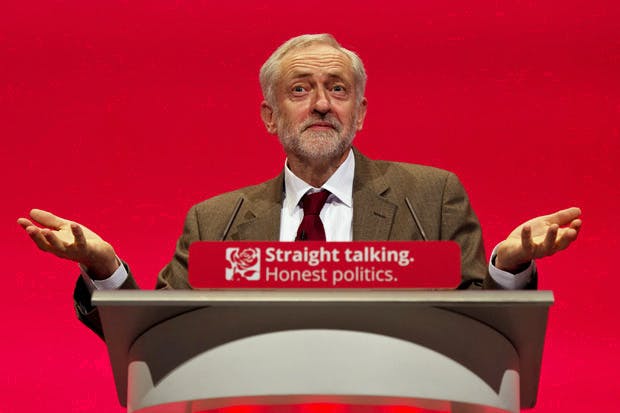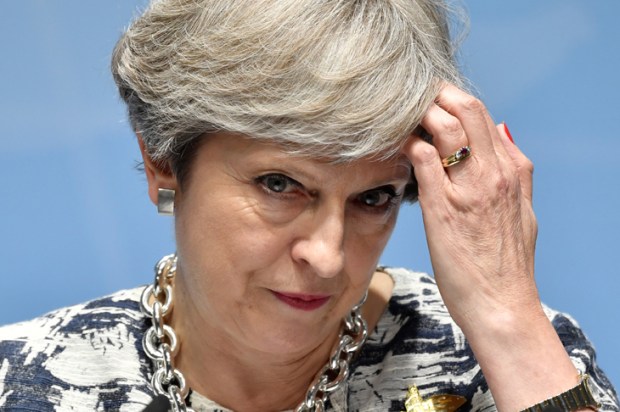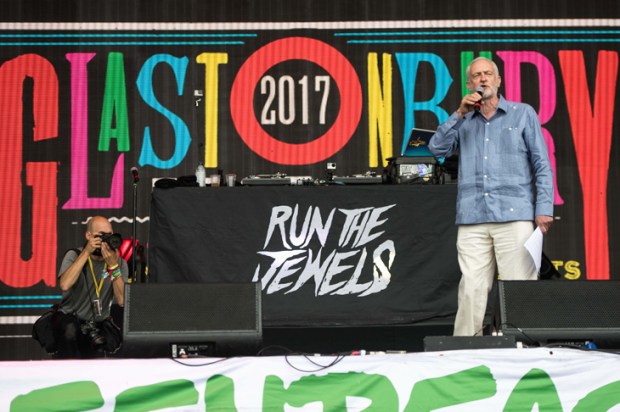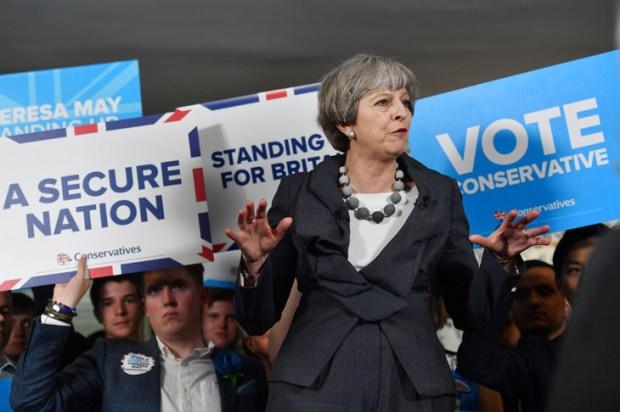The other night on Channel 4, I watched the best political interview I’ve seen all year. It was with Nick Clegg, and conducted by a guy called Alex Brooker. And it gave me, if only for a few moments, a glimpse of a better world.
You’ll know who Nick Clegg is. Brooker, though, might have passed under your radar: he was only just on mine. He’s one of three hosts on a comedy show called The Last Leg, which launched during the Paralympics of 2012. Disability features heavily in the premise of the show, so I probably ought to mention that he has a prosthetic leg and something up with his hands. Although really that isn’t relevant at all. What matters is what he did with Nick Clegg.
They don’t do a lot of political interviews on The Last Leg. Brooker had a practice run last week, though, with Alastair Campbell. It started off gently; bit of comedic sparring. Then a sudden glint appeared in Brooker’s eyes. ‘Chilcot inquiry,’ he said, almost out of nowhere. ‘On a scale of one to ten, how much are you shitting yourself when that comes out?’ And Campbell stopped smiling.
It was better with Clegg. There was a big red button between the two of them this time, and when Brooker slapped it, a godly voice declaimed the word ‘bullshit’. His first question was ‘Boris Johnson: statesman or twat?’ Clegg didn’t flicker. ‘Bit more the latter,’ he said. Then Brooker asked him whether he preferred David Cameron or George Osborne, and Clegg grimaced and hit the button himself. Then, amid the laughter, things stepped up a gear.
‘What Tory policy,’ asked Brooker, ‘do you most agree with?’ Clegg wriggled, and talked about the deficit. ‘On a scale of one to ten, with one being “Couldn’t give a toss” and ten being “Literally cannot sleep at night”,’ said Brooker, ‘how shitty do you feel about what you did with the tuition fees?’ And Clegg wriggled again, and waffled, and Brooker slapped the bullshit button, and Clegg shrugged, and went with it, and said ‘nine and a half’. Thereafter, we learned that he never wished he was actually in coalition with Labour, but was a bit of a fan of Douglas Alexander. Then he called a former Gove adviser a ‘wanker’, and agreed that he quite often wanted to give David Cameron a slap.
There is an art to the traditional political interview. You can be wheedling, like Andrew Marr. Or you can be savage, like Jeremy Paxman and his true heir, the emergingly brilliant James O’Brien. You can be relentless and devastatingly informed, like Kirsty Wark or Emily Maitlis, or wry and unflappable like those gents off Today. Always, though, the thing is a ritual and a dance. We might learn plenty, but true honesty isn’t quite on the menu. For the audience, the best-case scenario is the exposure of its absence.
‘Yeah,’ yawned Brooker, after one waffly non-answer, ‘I drifted off after ten seconds of that.’ Clegg giggled, as not all politicians could. Imagine Gordon Brown getting a ‘bullshit’; he’d look like a warlord who had stubbed his toe. Yet there are many others, surely, who would actually welcome an arena in which they could admit that they were winging it a bit, as well-meaning humans invariably do. Because Clegg, although the butt of every joke, didn’t come across badly at all. Normally, nobody talks to him so normally. Thus, normally, he doesn’t get to talk normally back.
A fortnight ago, The Spectator noted the voguish melding of politics and comedy. As Andrew Watts rightly noted, the trend is not wholly a good one. Politicians who trade heavily on their wit tend to be hiding something grisly behind it, and comedians who morph into activists too often betray that they have nothing behind their wit at all. Brooker’s technique, though, made me think that it’s not the politicians that the funny men should be seeking to usurp. It’s the hacks. And they could, too. Imagine if every political interview had a ‘bullshit’ button, which either side could press. What a lot of time that would save.
Betraying the Union
During the Scottish independence referendum last year, the people for whom I had the most contempt were those leftists who felt that destroying the Union was a fair price to pay for avoiding a Tory government in 2015. Where do you even start with such short-sighted imbecility? It’s like dodging a dinner date with your in-laws by burning down your house and killing your wife.
Suddenly, though they have company. This, in the shape of English Tories who feel that a nationalist Scotland is well worth it if it keeps Ed Miliband from No. 10. Which, in as much as I can make out, seems to be pretty much all of them. Abruptly, in Tory discourse, Scotland is a bogeyman; a nasty foreign place with ideas above its station. This is a tic, and it seems to come as naturally as anything. And I don’t like it at all.
Why shouldn’t the SNP end up in coalition with Labour? Where’s the horror in that? Speaking as a non-nationalist Scot, I fear the rise of the SNP not because they might meddle in Westminster, but because they might abandon Westminster altogether. If they’re British MPs then they’re British MPs; that’s what a Union means. You’d think, after fighting to save this one ‘with every fibre of his being’, David Cameron would realise this. Or was he just pretending?
Got something to add? Join the discussion and comment below.
Get 10 issues for just $10
Subscribe to The Spectator Australia today for the next 10 magazine issues, plus full online access, for just $10.
Hugo Rifkind is a writer for the Times.
You might disagree with half of it, but you’ll enjoy reading all of it. Try your first month for free, then just $2 a week for the remainder of your first year.














Comments
Don't miss out
Join the conversation with other Spectator Australia readers. Subscribe to leave a comment.
SUBSCRIBEAlready a subscriber? Log in